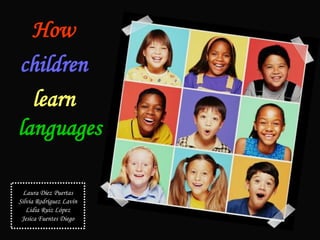This document discusses theories of how children learn languages. It covers:
1) Behaviorist, cognitivist, social-interactionist, and nativist theories of language acquisition.
2) The typical process of acquiring a first language from babbling to complex sentences between ages 0-12.
3) Factors that influence how much and what parts of additional languages children learn under different conditions, such as their age, motivation, and learning environment.























